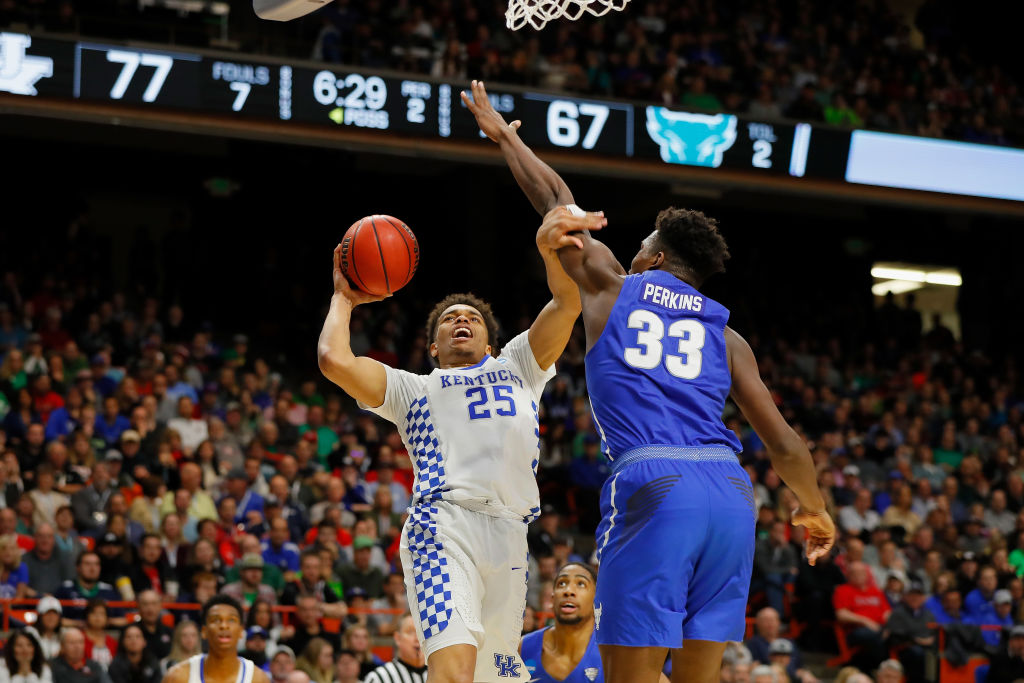Update (October 29, 2019): The NCAA’s highest governing board voted in favor of allowing college athletes to profit from the use of their likenesses.
The NCAA Board of Governors voted unanimously to allow players to receive financial compensation from the use of their name, image and likeness, the Associated Press reported.
The board announced its decision on Thursday following a meeting at Emory University in Atlanta, Georgia.
“We must embrace change to provide the best possible experience for college athletes,” board Chairman Michael V. Drake said in a press release. “Additional flexibility in this area can and must continue to support college sports as a part of higher education. This modernization for the future is a natural extension of the numerous steps NCAA members have taken in recent years to improve support for student-athletes, including the full cost of attendance and guaranteed scholarships.”
Each division is required to update its bylaws and policies to reflect the change by January 2021.
The vote is an about-face for the NCAA, which used to be adamant about not paying college athletes to maintain their amateur classification. The NCAA, however, issued a set of guidelines for the changes.
The decision came a month after California passed a law allowing players to be paid for endorsements and to hire sports agents. CNBC reported the NCAA sent a letter to California Governor Gavin Newsom in September to express their disapproval of the law.
On Thursday, Representative Mark Walker (R-NC) introduced The Student-Athlete Equity Act, a federal bill that would redefine amateur sports organizations in the tax code to allow athletes to be paid. Representative Cedric Richmond (D-LA) co-sponsored the bill.
“As young men and women who stimulate the economics of the NCAA, they should also be able to secure their own economic well-being,” Richmond said. “I am proud to cosponsor this legislation and look forward to continuing the conversation on advancing the educational and financial equity of all student-athletes.”
Original (March 18, 2019): Rep. Mark Walker (R-N.C.) has introduced a bill allowing student-athletes to profit off their likeness while still attending school.
The Student-Athlete Equity Act would redefine amateur sports organizations in the tax code, forcing the NCAA to change its current model to maintain their tax-exempt status.
“Signing an athletic scholarship with a school should not be a moratorium on your rights to your name, image, and self-worth," Walker said. "It’s time to bring equity to student-athletes, and fix the injustices that exist in the current NCAA model.”
The issue has been a point of contention for the NCAA, who in 2014 reached a $40 million settlement with former Division 1 men's basketball and football players after a lawsuit alleged the former players likeness in video games.
Walker's introduction of the bill also takes place days before the beginning of the NCAA men's basketball tournament — which, according to the Raleigh News and Observer, CBS and Turner Sports are in the middle of a 22-year $19.6 billion television contract that runs through 2032.
“As young men and women who stimulate the economics of the NCAA, they should also be able to secure their own economic well-being,” said Rep. Richmond. “I am proud to cosponsor this legislation and look forward to continuing the conversation on advancing the educational and financial equity of all student-athletes.”
